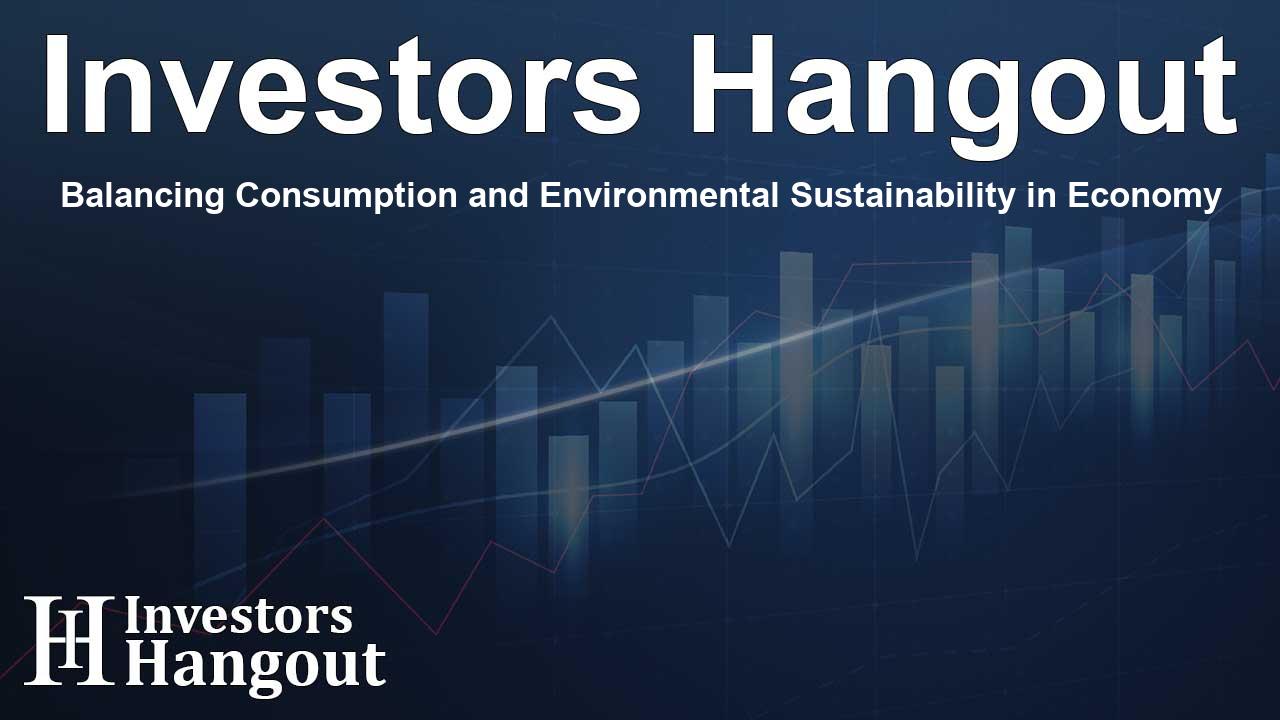Balancing Consumption and Environmental Sustainability in Economy

Rational Consumption and Economic Growth
In the modern world, the relationship between consumption and waste management has become a hotly discussed topic. Many individuals express concerns that increasing consumption might result in heightened waste production. However, a closer examination reveals that promoting sensible consumption can indeed support economic growth while aligning with anti-waste initiatives.
Satisfying Real Needs Through Responsible Spending
As individuals, our consumption choices should be driven by genuine needs rather than mere impulse. For example, upgrading to a new phone can enhance not only our communication but also our overall quality of life. Engaging in meaningful travel can provide enriching experiences that broaden our perspectives. Such choices reflect both functional needs and emotional fulfillment, driving a well-rounded approach to consumption.
Economic Contributions of Consumption
From a broader economic standpoint, consumer spending remains a crucial engine for growth. Various statistics indicate notable increases in retail sales and final consumption expenditure, showcasing the vital role consumption plays in driving GDP. This emphasizes the need for economies to rely increasingly on domestic consumption as a source of stability against global uncertainties.
Healthy Consumption Patterns
The essence of beneficial consumption lies not in mindless spending but in fostering a culture of sustainable, value-driven expenditure. Rather than succumbing to reckless consumerism, society should endorse practices that emphasize quality and utility, aligning consumption habits with greater environmental consciousness.
The Intersection of Waste Reduction and Consumption
Contrary to popular belief, campaigns that advocate for waste reduction do not necessarily dampen consumption activities. These initiatives aim to encourage more thoughtful spending that maximizes value. For instance, dining experiences can be optimized through smaller portion offerings and customized meal preparations, enhancing both health and enjoyment.
Innovative Consumption Models
Moreover, contemporary consumption patterns have shifted significantly, with shared services, such as bike-sharing and co-working spaces, enhancing resource efficiency. Encouraging the recycling of unused items and embracing innovations like energy-efficient appliances reflect a comprehensive approach to consumption that ultimately supports economic growth while mitigating waste.
Cultural Influences on Consumption and Waste Management
The principles of reducing waste resonate with longstanding cultural values that emphasize hard work and thriftiness. Recognizing the importance of food security and responsible consumption has been a focus of leadership, as generating awareness about waste reduction is critical for fostering a productive societal mindset.
The Role of Governance in Promoting Thrift
Recent regulations highlight a commitment from governmental bodies to steer public behavior towards conscientious consumption. These measures are designed to create an environment where waste is frowned upon, while prudent spending is celebrated. The intent is clear: to align consumption habits with the development of society while maintaining a focus on essential expenditures.
Integrating Consumption with Life Quality and Sustainability
In conclusion, achieving a balance between boosting consumption and advocating for resource conservation is entirely feasible. By making informed and rational spending decisions, individuals can enhance their quality of life while fostering a sustainable economic environment. Encouraging responsible consumption ensures that we do not lose sight of the underlying principles that advocate for thoughtful spending aligned with community well-being and ecological integrity.
Frequently Asked Questions
What does rational consumption mean?
Rational consumption refers to making informed purchasing decisions that satisfy both material and emotional needs without contributing to waste.
How does consumption drive economic growth?
Increased consumer spending stimulates demand, which in turn drives production and economic activity, crucial for overall GDP growth.
Can campaigns to reduce waste enhance consumption?
Yes, waste reduction strategies encourage more thoughtful spending, leading to improved consumption practices that benefit both the economy and the environment.
What role does government play in promoting sustainable consumption?
Governments can implement regulations and initiatives that promote thrift and conscientious spending, shaping cultural attitudes towards consumption and waste.
Is it possible to enjoy a good life while being frugal?
Absolutely! A fulfilling life can be achieved through mindful consumption that prioritizes quality, value, and sustainability over mere volume.
About The Author
Contact Thomas Cooper privately here. Or send an email with ATTN: Thomas Cooper as the subject to contact@investorshangout.com.
About Investors Hangout
Investors Hangout is a leading online stock forum for financial discussion and learning, offering a wide range of free tools and resources. It draws in traders of all levels, who exchange market knowledge, investigate trading tactics, and keep an eye on industry developments in real time. Featuring financial articles, stock message boards, quotes, charts, company profiles, and live news updates. Through cooperative learning and a wealth of informational resources, it helps users from novices creating their first portfolios to experts honing their techniques. Join Investors Hangout today: https://investorshangout.com/
The content of this article is based on factual, publicly available information and does not represent legal, financial, or investment advice. Investors Hangout does not offer financial advice, and the author is not a licensed financial advisor. Consult a qualified advisor before making any financial or investment decisions based on this article. This article should not be considered advice to purchase, sell, or hold any securities or other investments. If any of the material provided here is inaccurate, please contact us for corrections.
